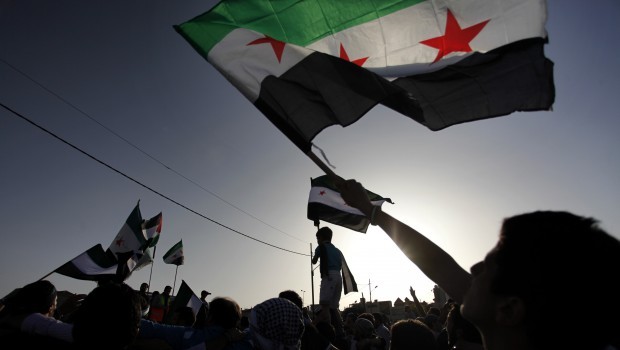This war is unlike other Arab wars; it is a war between the major symbols of different identities, or at least that is how this conflict is being framed.
Our past, and our discourse, is sectarian.
Last Monday, the editor-in-chief of the Al-Safeer newspaper, well-known Lebanese journalist Talal Salman, wrote about the country’s embroilment in the Syrian war, by which we mean Hezbollah’s intervention on the side of Bashar Al-Assad, not to mention the Sunni volunteers joining the rebels. He said that all of this was taking place following the exposure of the false approach of “non-interference”.
Talal Salman’s words are striking. A Shi’ite, Salman has never been an extremist, or a follower of the velayat-e faqih doctrine, on the contrary, he is an open-minded Arab and a model of journalistic professionalism. Despite this, he discussed the intervention of Hezbollah, and Lebanon’s involvement in this terrible war in Syria, from a sectarian perspective, at least in the psychological and social meaning of the word, if not the religious.
Talal Salman claimed that “this is a war of self-defense rather than defense of the Syrian regime,” adding that Hezbollah had entered the war late, compared to the radical Sunni groups on the other side.
Salman also said: “The timing of this battle may be provocative, but this can only be expected. This war is inevitable; nobody can run from the battles taking place there, before these expand to embroil the entire region as a whole in huge conflict that nobody can survive.”
However this war was not inevitable and we could have avoided this were it not for Khomeinist Iran’s aggressive policies, its fundamentalist slogans which are no different than the Sunni extremist slogans, and its nuclear ambitions. Every action leads to a reaction, as they say.
Hezbollah is a detached arm of the body of the Islamic Republic, following the same Khomeinist ideology, which is based on the idea of exporting the Shi’ite Islamic revolution. In the early days of the revolution, before it took up arms, the protesters would chant slogans such as “nobility and reform”, “fulfill our demands”, and “embrace the opposition.”
When the opposition took up arms, following the regime’s massacres, we called on the west and international community to take the initiative and embrace the “nationalist’ revolution to ensure that the Syrian people do not despair and resort to Al-Qaeda, takfirism, and terrorism.
This was our call, but there was no answer.
Today, we are experiencing the result of this inaction. This is something that Hezbollah was also guilty of at the time, promising not to get involved and pledging support to the opposition and its calls for reform. However when the Assad regime felt the pinch of the armed opposition, Hezbollah rushed to join the battle, and now it is paying the price for its ideological bias. We are now all reaping the fruits of the past.
So is there any hope?
We do not know, however Bashar Al-Assad has confirmed—once again—that his regime and Hezbollah belong to the same axis.
Perhaps a figure like Hashemi Rafsanjani could moderate Iran’s intransigent stance; however his presidential candidacy has since been rejected. Rafsanjani may have been able to achieve this, particularly as he announced—prior to the rejection of his candidacy—that one of his major objectives was to put an end to the regional divisions between the Sunnis and Shi’ites.
Yes, there are some people who hate the Shi’ites, and do not consider them to be true Muslims; such people are always present, and they love to view the world through a sectarian lens. It is for this very reason that we warned against the Syrian conflict being transformed into a sectarian war, with Shi’ite movements—such as Hezbollah—raising inflammatory and provocative slogans through the gateway of the velayat-e faqih doctrine. We warned against this outcome, whereby Hezbollah follows the leadership of the Supreme Guide to fight in a foreign country under a sectarian banner.
This was our warning, but there was no answer.
Unfortunately, we are now witnessing the results of all this, and the greatest losers are those who oppose sectarianism, on both sides.
